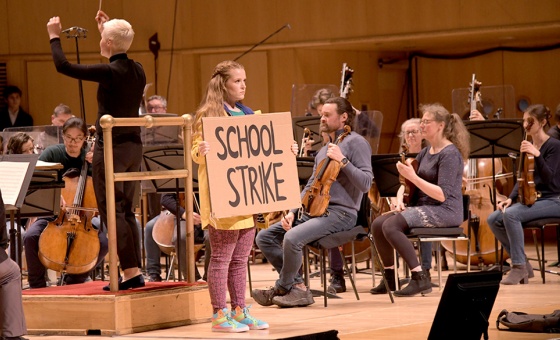This is the last article you can read this month
You can read more article this month
You can read more articles this month
Sorry your limit is up for this month
Reset on:
Please help support the Morning Star by subscribing here
THE pandemic has given rise to something wonderful; it seems each of us has been made aware that we are a part of something bigger.
And yet, while we’re all thinking about the social implications of buying loo roll or going for a walk, every day in homes across the globe 120 million viewers will log onto PornHub, the world’s largest platform for free pornography.
As I write, searches for “coronavirus quarantine” pornography are trending.
The coronavirus crisis has made people aware of the working conditions of those who serve food and deliver parcels — we have been forced to reflect on the power dynamics of supply and demand.
Perhaps we should also ask what pornography reveals about the world we are a part of, and what the consequences are for too many of those in front of the camera.
PornHub is on something of a public relations drive at present, recently donating 50,000 masks to New York City first responders.
Over recent months the site has made premium content free, apparently in an attempt to encourage viewers to “stay at home and flatten the curve” rather than leaving their homes and potentially spreading the virus.
These good works are being carried out under the shadow of revelations that the site has been found to host images of trafficking victims, abused missing children, gang rape and torture.
Rose Kalemba’s story exemplifies the problem with PornHub. In 2009, when she was 14, Rose was abducted at knife-point and held for 12 hours during which time she was raped, beaten and stabbed in the leg by two men while a third filmed parts of the assaults.
A few months later Rose was browsing a social media site when she found herself tagged by others at her school in footage of the attack.
She recalls: “The titles of the videos were ‘teen crying and getting slapped around,’ ‘teen getting destroyed,’ ‘passed out teen.’ One had over 400,000 views … The worst videos were the ones where I was passed out.
“Seeing myself being attacked where I wasn‘t even conscious was the worst.”
Rose says she emailed PornHub several times over a period of six months in 2009 to ask for the videos to be taken down. She received no reply and the videos remained live.
Rose’s experience is far from unique, in the last few months, there have been several cases of sex trafficking and child rape films hosted on PornHub.
Eleven years on from when Rose’s attack was uploaded and today the one of the “most viewed” films on PornHub is “hot tiny teen fucked until she shakes” with 5.8 million views.
There is no way of knowing of whether the “tiny teen” featured consented to either the acts performed on her, or the filming and sharing of them.
Like many of those featured on PornHub, Rose’s attack had a racist dimension: she is a First Nations woman and her attackers were white.
On PornHub content is divided into racial categories such as “Arab,” “Asian” and “ebony.”
In this woke world where using the outdated phrase “coloured” will have one mobbed online and deplatformed by the Twitterati, it is fascinating that pornography escapes such scrutiny.
In any other context segregating people into racial categories would rightly be recognised as dehumanising, but then, in any other context what is framed as sexually exciting in pornography would be understood as abuse.
Defenders of pornography are often quick to remind detractors that like Fair Trade coffee, “ethical pornography” and “feminist pornography” exist as genres.
But a quick Google search reveals just how niche it is, including the first few pages of debates about whether “ethical” or “feminist” pornography can exist there are 10,300,000 results for “ethical porn” and 16,300,000 for “feminist porn.”
This sounds like a lot, until you realise that there are 2,450 million results for “teen porn.” A further disturbing, if darkly amusing insight is that “furry porn” — that is people who dress up in cartoonish animal costumes for sexual arousal — yields 144,000,000 results; 14 times more than “ethical porn.”
In wake of the soul-searching forced by the #metoo movement, the moral majority have wrung their hands about paedophilia and the behaviour of public figures such as Prince Andrew and Woody Allen.
And yet as each new scandal or revelation has unfolded “Teen” has remained one of the most consistently searched for terms on PornHub.
Now is a time of reckoning, and while we’re all basking in the togetherness that national emergency brings, we need to face our hypocrisy about pornography head-on.
To PornHub’s 120 million daily users watching pornography might seem like a personal choice, to survivors like Rose Kalemba it is a stark reminder of how her choice was taken away.











